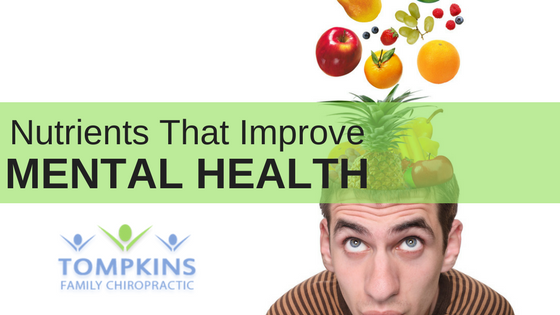
We’re doing it to ourselves.
In 1847 a doctor named Ignaz Semmelweis suggested to his physician colleagues that he has been researching and realized what’s causing septicemia in newborn mothers. Moms would deliver their babies, then an infection would take over mom’s body and then she would die. 18% of moms died as a result of this. His research showed that a small, non-medical step can decrease the likelihood of septicemia from 18% to 2%. All physicians had to do was wash their hands. In the birthing clinics at the time the death rates of mothers of newborns were 3 times higher than in locations where midwives helped with labor and delivery, the family’s home. Today 250 years later, we understand this fact to be true but this was severely rejected by the medical community at this time. They couldn’t not accept that they were the cause of the death of these mothers.
Semmelweis is ridiculed dismissed, was broken down, and died from, of all things, septicemia in an asylum.
The truth is hard to accept
When something that has been proven by science is different from the scientific norm, it gets shut down and buried even though it can better help the patient, and if we are going to improve the health of people in the future we have to be open to and willing to embrace advances and let go of things “we’ve always done” if it means the betterment of the people around us.
Today this treatment that is truly effective for others is nutrition for our mental health.
Mental health challenges are rapidly rising
The rates of depression are on the rise in america. In the past 20 years the American College of psychology says that depression has risen over 125% in the last 20 years. By the year 2020, depression will have risen to be the 2nd most prevalent medical condition in the world.
The rate of ADHD in children is increasing rapidly over the years. In fact, over the last 8 years, there has been a 43% increase in ADHD diagnoses.
At first glance, the treatments for these conditions can appear effective. Forexample ritalinis an incredibly effective medication upon initial dosage for children with ADHD, with children showing promising signs early on in their attention and behavior. However when you look long term these treatments don’t show the same result. Actually many children fare worse long term than those with the diagnosis and no medical treatment at all.
Despite our increasing use of antidepressants, the long term studies show that we’re no better now than those who were never on antidepressants.
Diet and Mental Health
I’m not saying that no one should take these meds, but there is another way forward that is NOT easy but the outcomes are really good. If the medications are allowing us a false sense of security leading to eventual poorer outcomes, than what can we do to improve our situation? Maybe we have to think like our outcast physician that saved millions of lives Semmelweis.
The area we need to focus is nutrition.
We need to understand that our diets are having an effect on our mental health and we’ll get into that soon, but we should also realize that what we’re currently eating, the standard american diet. There is not one single study that shows the standard american diet is linked to mental health. If that’s the case, then we need to make some considerable changes.

We know that what we’re doing isn’t working, we will begin and continue to make decisions and changes that will improve your mental and your overall health.
The Research
Canadian researchers began studying nutrients on behavioral health and found some really promising information
In 8 weeks, twice as many people responded to nutrients compared to placebo. Those using nutrients had less negative effects socially than those using placebo. We should now begin to see the connection between our diets and mental health.
These studies are being done over and over again with positive results. That specific nutrients can have positive effects on brain function and overall nervous system function.
Here are some of the nutrients that help your brain
Omega 3 Fatty Acids
Fish oil is one of the more widely used supplements studied to have an effect on the brain and mental and emotional function. The omega-3 fatty acids EPA and DHA are really important to the optimal function of your brain and here’s why. DHA makes up a large portion of the gray matter of the brain. DHA and EPA promote healthy blood flow, which is essential to optimal brain function. These fatty acids are major building blocks for membranes, cell structures that are vital for all our cells to function – and are crucial for our cell membranes to perform at their best. Our nerve cells, and especially the connections that they make (the synapses) need to be rich in omega-3 fatty acids. Think of omega-3s as high quality motor oil for the finely-tuned engine that is your brain.
Taking a very high quality fish oil concentrate is a great way to ensure you get enough of these healthy omega-3s.
More Research
If you need a little more convincing, take note:
- A growing body of scientific evidence indicates that EPA- and DHA-rich fish oil helps elevate mood. One twenty-year study involving 3,317 men and women found that people with the highest consumption of EPA and DHA were less likely to have mood challenges.
- A tremendous amount of scientific evidence points to a connection between consumption of fish that is rich in omega-3 fatty acids, healthy and cognitive function.
Then in the May 1999 Archives of General Psychiatry, Andrew Stoll, MD, and colleagues reported a study of fish oil in 30 manic-depressive patients. Sixty-four percent of those who took 10 grams of fish oil per day for four months reported a marked improvement in their symptoms. By contrast, only 19 percent of those receiving the placebo benefited.
Joseph Hibbeln, MD, a psychiatrist at the National Institute of Health, thinks omega-3s might explain why the rate of depression is rising in the United States. This diet and mental health connection is one we cannot forget.
How we got here
In a health-conscious push to rid our diets of saturated fats and cholesterol, Americans have been eating less red meat and eggs — two good sources of omega-3s. Furthermore, we have been switching to the polyunsaturated fats, such as corn, soybean, and sunflower oils, which are relatively low in omega-3s.
This trend must change. for more information on the nutrients for healthy brain function, grab our FREEBIE here (7 Nutrients that WILL improve your brain function).
Conclusion:
In the 19th century physicians were offended at the ideal that they could be the cause of new mother’s deaths. How do you think they’re responding when we suggest that the things that they’re recommending could be making the epidemic of mental illness worse? In the amount of time that it will take medicine to see the truth about our diets, you can be making a positive impact on your diet and your mental health.
If you want to get serious about mental health, you must get serious about nutrition.
Get our FREEBIE to to learn about the brain foods that you’ll want to eat every day.
Read Next: 6 Steps to Improve Mental Health Without Medication

